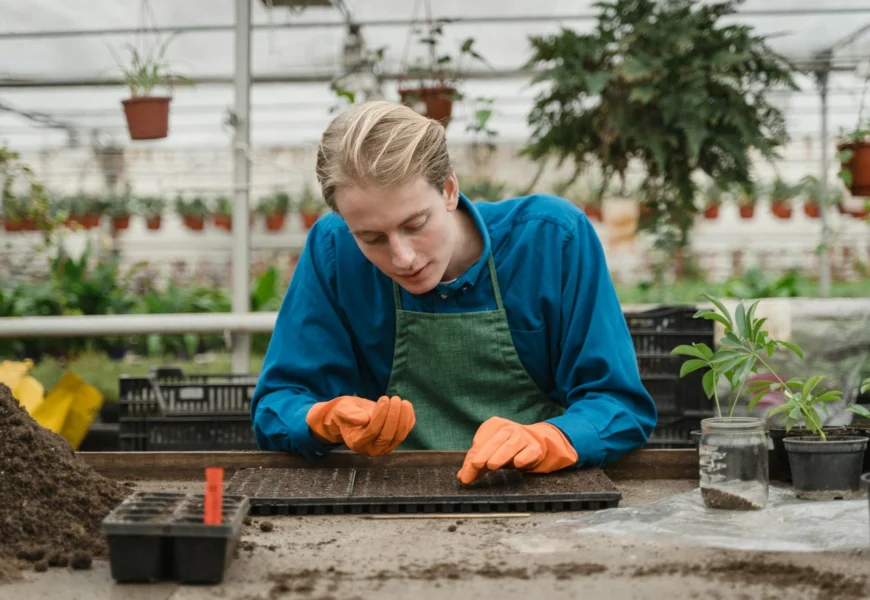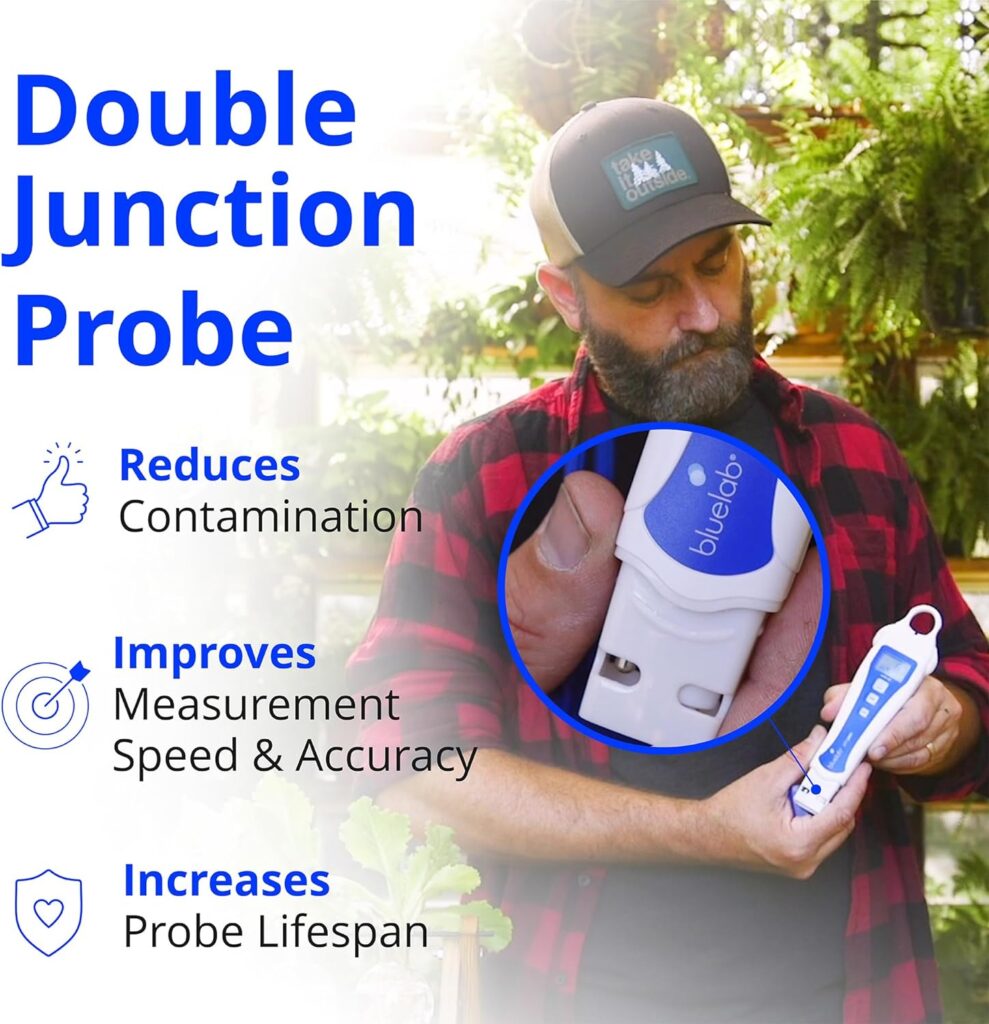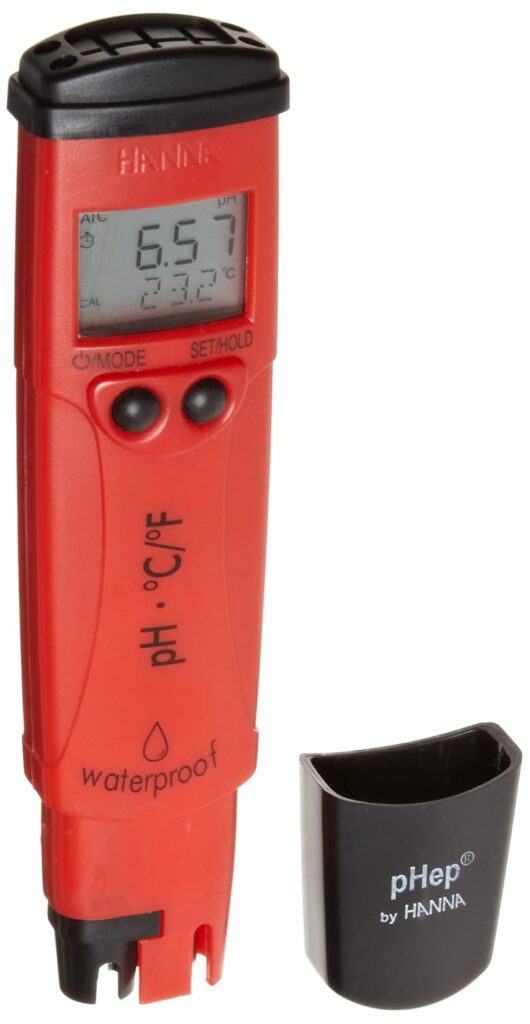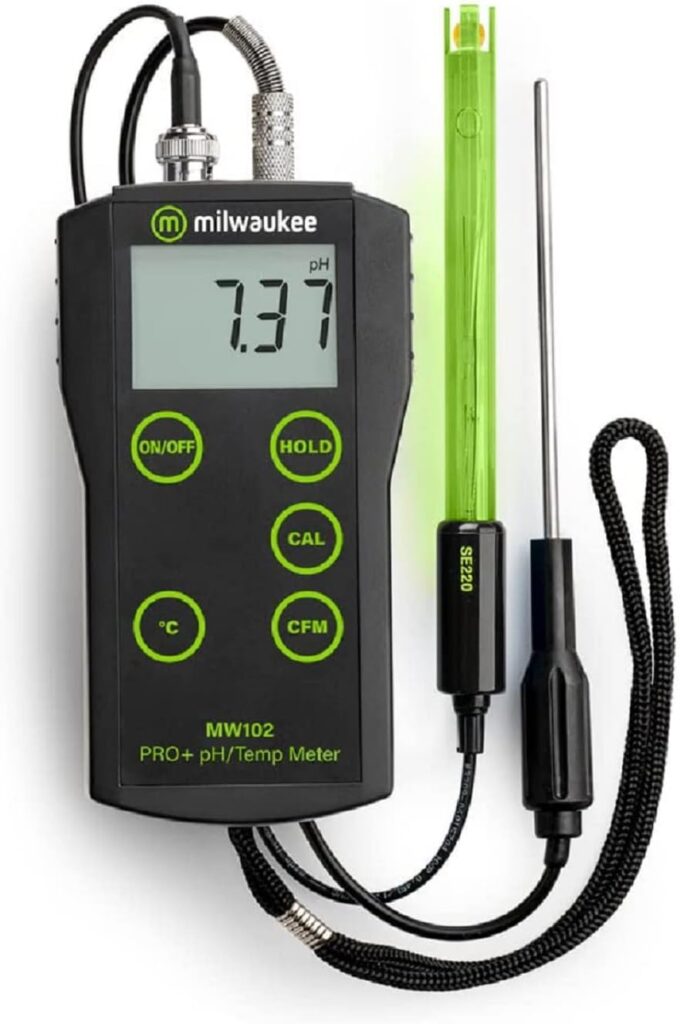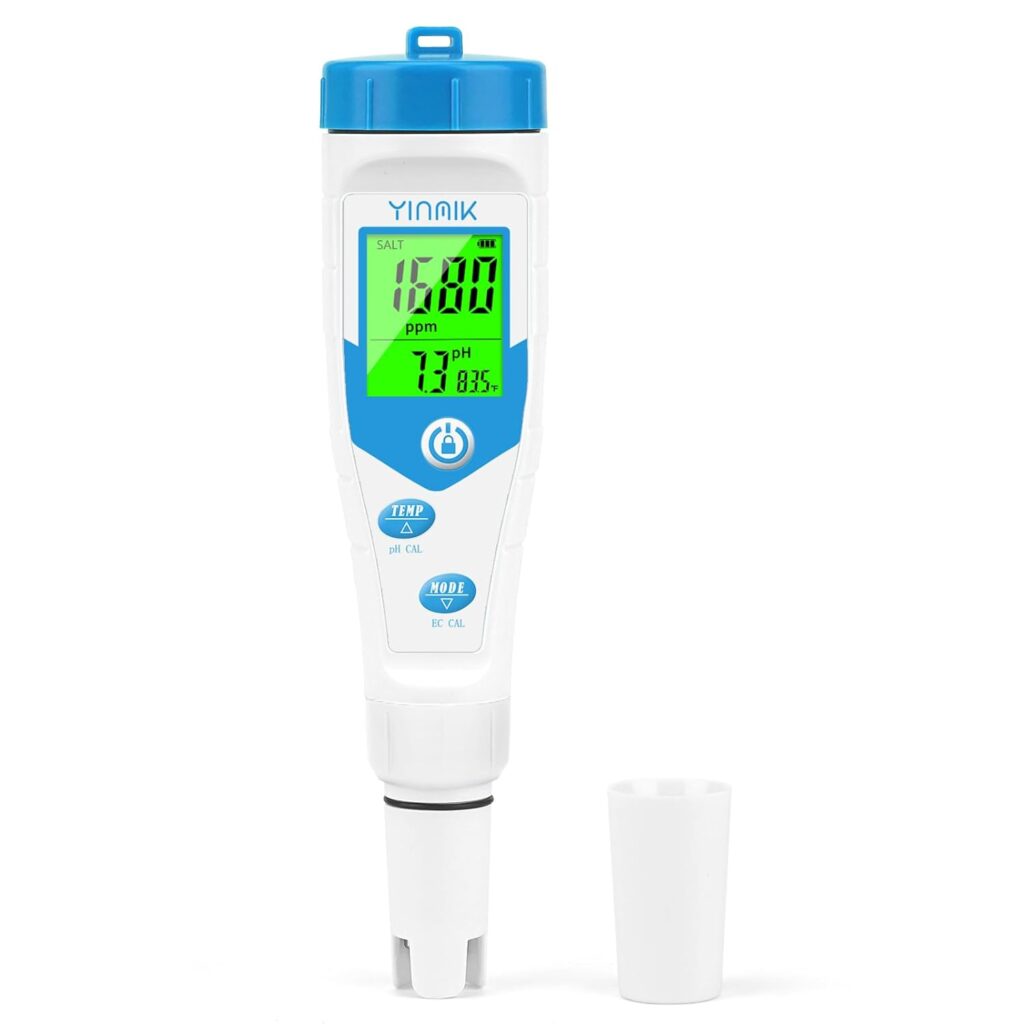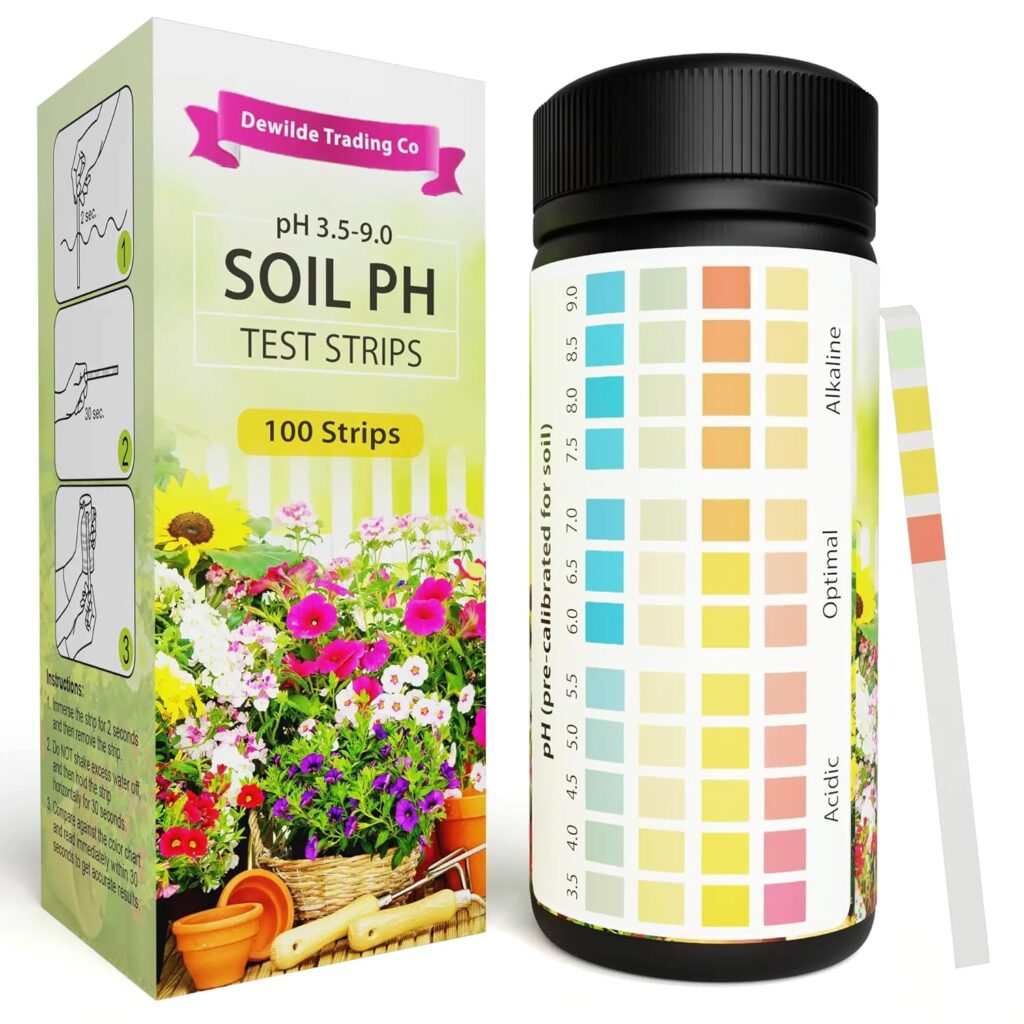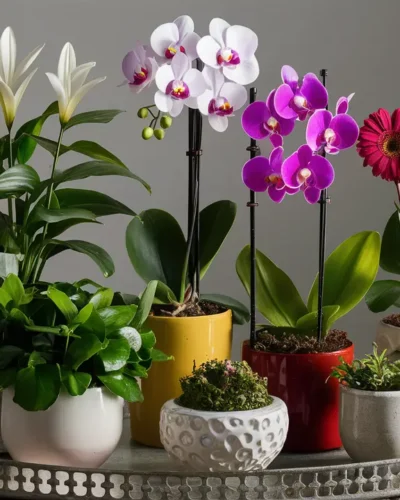Have you ever wondered why your prized houseplants are looking a bit lackluster, despite your best efforts? The answer might lie in the unseen world of soil pH. It’s a crucial element that often goes overlooked, but its impact on your plants’ health is significant. Let’s dive into the world of soil pH and discover how it affects our leafy companions and lets find the best pH meter for your houseplants.
Table of Contents
1. What’s pH and Why It is Importance for Houseplants
Think of pH as a measure of acidity or alkalinity. It’s represented on a scale from 0 to 14, where 0 is highly acidic, 7 is neutral, and 14 is highly alkaline.
Just as our own bodies thrive in a specific pH range, so do plants. A slightly acidic pH, between 6.0 and 6.5, is generally considered the sweet spot for most houseplants. This range allows them to effectively absorb nutrients and flourish. However, venturing outside this zone can lead to nutrient deficiencies or toxicities, impacting their growth and overall well-being.
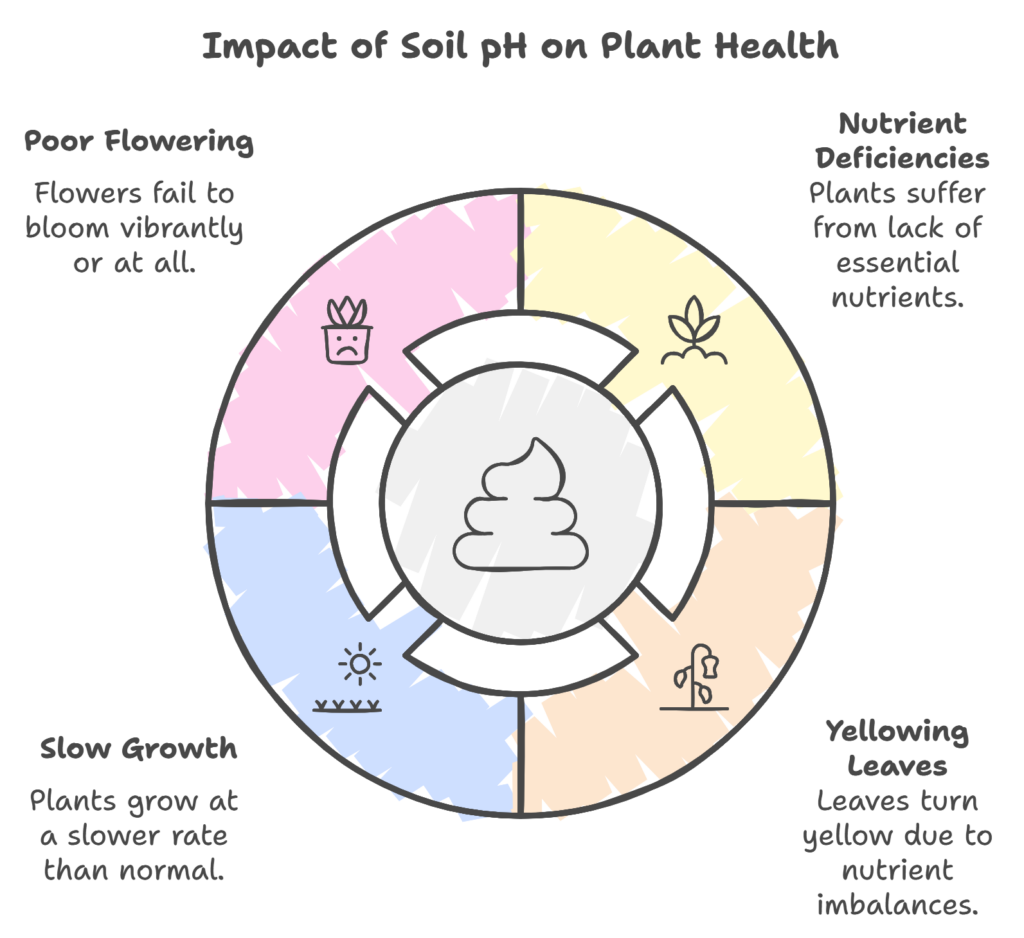
Nutrient Availability
Imagine a grand buffet where only certain dishes are accessible. This is what happens to plants in soil with an unfavorable pH. Essential nutrients become unavailable for absorption, hindering growth. For example, in acidic soils, plants struggle to absorb vital nutrients like calcium and magnesium. Conversely, alkaline soils lock up iron and manganese, hindering chlorophyll production and leaving your plants with a pale, sickly appearance.
Root Health
Extreme pH levels can cause damage to plant roots, making them vulnerable to diseases and pests. Just like our own bodies, plants require a balanced environment for their delicate roots to thrive. An imbalanced pH can disrupt their root system, leading to stunted growth and even death.
In the next section, we’ll explore the various tools available for measuring soil pH, giving you the power to cultivate a thriving green oasis in your home.
2. Types of pH Meters Available for Houseplants
When it comes to testing the pH of your houseplant soil, you’ve got a few different options to choose from. Let’s dive into the most common types of pH meters for houseplants:
1. Soil pH Test Kits
These kits typically involve dropping a small sample of soil into a solution and observing the color change. While they’re affordable and easy to use, they may not provide the most accurate readings.
2. Digital Soil pH Meters
These handheld devices are more accurate than test kits. They work by inserting a probe into the soil, which then measures the pH level and displays it on a digital screen. Digital soil pH meters are widely available and a popular choice for many houseplant enthusiasts.
3. Liquid pH Test Solutions
These solutions, available in drop or tablet form, change color when added to soil water. They provide a quick and easy way to check the pH but may not be as accurate as other methods.
4. pH Meter Pen
This type of meter is similar to a digital meter but comes in a pen format, making it compact and convenient to use. It’s an excellent option for those who want portability and accuracy.
5. pH Meter for Water
While this type of meter is primarily used for testing the pH of water, it can also be used to check the pH of your watering solution. These meters often have a higher degree of accuracy and are more affordable than soil pH meters.
Now that you’re familiar with the different types of pH meters available, let’s delve into the factors to consider when choosing the best one for your needs.
3. Factors to Consider When Choosing a pH Meter
Choosing the best pH meter for houseplants can feel overwhelming with so many options available. But don’t worry! By considering these factors, you can find the perfect match for your green friends:
1. Type of Meter
- Digital pH Meters: These are the most common type and offer precise readings. They come in handheld or pen-style models, making them convenient for spot checks on your plants.
- Soil pH Meters: These are designed specifically for measuring the pH of your potting mix. They are usually simpler to use and often include a moisture sensor.
- Liquid Test Kits: While less accurate than digital meters, these kits are a budget-friendly option. You simply mix a sample of your soil with a solution and observe the color change.
2. Accuracy and Range
- Accuracy: Look for meters with a high degree of accuracy, ideally within 0.1 pH units. This ensures you get reliable readings for your plants.
- Range: Most houseplants thrive within a pH range of 6.0 to 7.0. Make sure the meter you choose covers this range.
3. Calibration
- Automatic Calibration: This feature saves you time and ensures consistent readings. The meter automatically adjusts itself to the correct pH value.
- Manual Calibration: This involves using a calibration solution to set the meter’s accuracy. This is usually done before each use.
4. Durability
- Water Resistance: If you’re prone to accidental spills, opt for a water-resistant meter. Look for an IP rating to indicate its resistance to water.
- Durability: A sturdy meter will last longer and handle rough handling.
5. Features
- Backlight: A backlit display is helpful for readings in low light conditions.
- Data Logging: Some meters can store readings for later analysis.
- Temperature Compensation: This feature ensures accurate readings even in varying temperatures.
6. Budget
- Price: pH meters come in various price ranges. Consider your budget and the features you need before making a purchase.
- Value for Money: Look for a meter that offers good value for money, balancing features with cost.
Don’t forget, it’s also crucial to check reviews and compare different models before making a final decision. Knowing what to look for will empower you to choose the best pH meter for your houseplants, ensuring they thrive and stay happy for years to come!
4. Top pH Meter Recommendations for Houseplants
Now that you’ve considered all the important factors when choosing a pH meter, let’s dive into some specific recommendations. Here are some of the top-rated pH meters for houseplants, catering to different needs and budgets:
1. For Beginners: Bluelab Combo Meter
If you’re new to pH testing and want a straightforward, reliable option, the Bluelab Combo Meter is a great choice. This all-in-one device measures pH, conductivity (EC), and temperature, providing a comprehensive picture of your soil’s health. Its intuitive design and easy-to-read display make it user-friendly, even for those with no prior experience.
2. For Budget-Conscious: Hanna Instruments HI98103
The Hanna Instruments HI98103 is a reliable and affordable pH meter that’s perfect for those on a budget. While it doesn’t offer the added features of some higher-end models, it delivers accurate pH readings and is durable enough for everyday use.
3. For Advanced Users: Milwaukee MW102
If you’re a seasoned plant parent looking for precision and advanced features, the Milwaukee MW102 is a top contender. This professional-grade meter boasts high accuracy, a large display, and the ability to calibrate with multiple buffer solutions for even more accurate results.
4. For the Eco-Conscious: At-Home DIY pH Test Kits
For those who prefer a more eco-friendly approach, DIY pH test kits offer a great alternative to electronic meters. These kits typically use liquid solutions to test the pH of your soil, and are generally less expensive and require minimal maintenance.
5. For Specific Needs: Soil pH Test Strips
Soil pH test strips are a convenient and inexpensive option for getting a quick estimate of your soil’s pH. While they may not offer the same level of accuracy as dedicated meters, they can be helpful for quickly identifying any significant pH imbalances.
Remember, the best pH meter for your houseplants will depend on your individual needs, experience level, and budget. It’s always a good idea to research different models and read reviews before making your purchase.
For more information on maintaining your houseplants’ health, be sure to check out our articles on moldy mayhem – the truth about houseplant soil and cat-friendly houseplants. These articles can help you identify potential problems and provide the best care for your green companions.
5. Tips for Using and Maintaining Your pH Meter
Once you’ve got your hands on a pH meter, it’s time to put it to good use! Here’s a rundown of how to use and maintain your pH meter for accurate results:
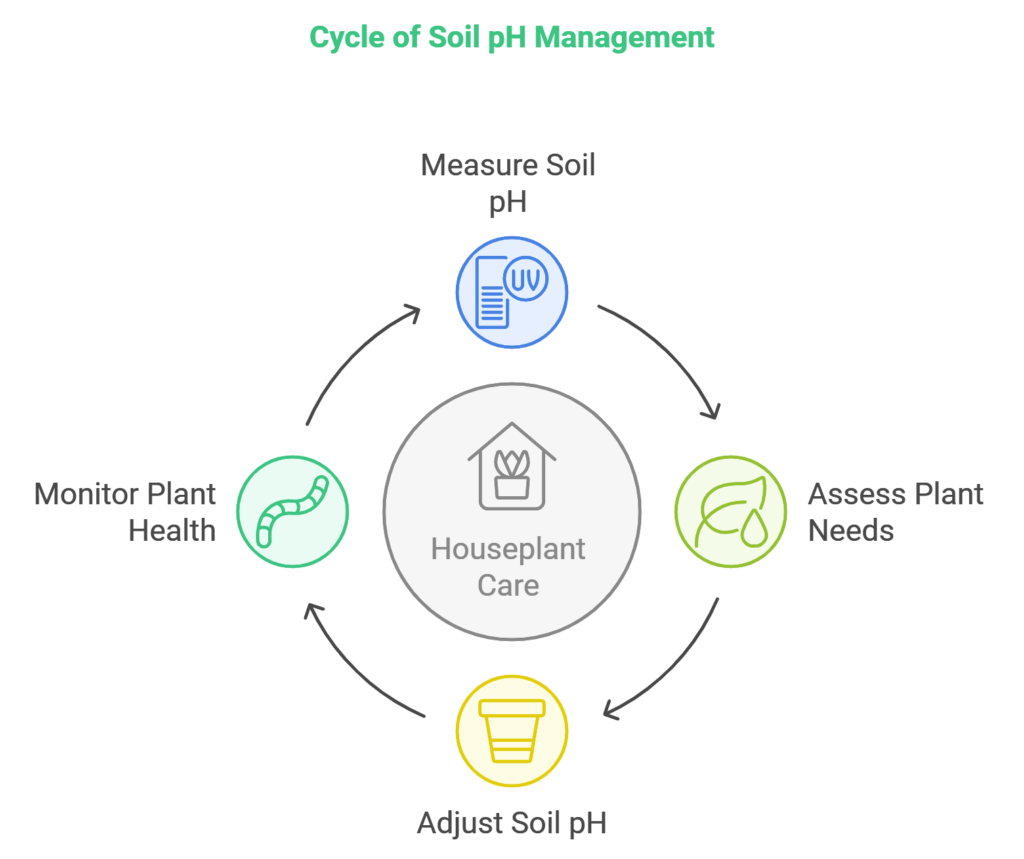
Calibration is Key:
- Calibrate regularly: For reliable readings, calibrate your pH meter before each use. This involves using pH buffer solutions, typically available in pH 4, 7, and 10. Refer to your pH meter’s instructions for the exact process.
- Clean your meter: Before and after calibration, gently clean the probe with distilled water to remove any residue. This helps ensure accurate readings and prevents buildup that can interfere with the sensor.
Using Your pH Meter:
- Soil testing: When testing your soil’s pH, gently insert the probe into the soil, ensuring it’s submerged in the moist portion. Avoid touching the probe to anything other than the soil.
- Water testing: If you’re testing the pH of your water, fill a small container with a sample and gently dip the probe into the water.
- Patience is key: Allow a few seconds for the pH meter to stabilize and display a reading. Don’t rush the process!
Maintaining Your pH Meter:
- Storage: Store your pH meter in a cool, dry place, preferably with the probe covered. This prevents the probe from drying out and helps maintain its accuracy.
- Proper cleaning: Clean the probe regularly to prevent buildup. Avoid using harsh chemicals or abrasives as they can damage the probe.
- Battery life: Ensure your pH meter has sufficient battery life. Refer to the instructions for battery replacement procedures.
Pro Tip: If you’re unsure about the accuracy of your pH meter, consider comparing it to a known standard pH solution. This can help you verify that your readings are reliable.
Conclusion:
Understanding soil pH is essential for keeping your houseplants happy and thriving. Choosing the right pH meter can make a huge difference in your plant care routine. By following these tips, you can get the most out of your pH meter and ensure your houseplants are getting the optimal growing conditions.
If you’re looking for inspiration for your plant collection, check out our guide on 10 Easy Houseplants for Beginners. Don’t forget to always read your pH meter’s instructions and follow them carefully for accurate and reliable results. Happy planting!
Disclosure: This post may contain affiliate links. This means if you click on a link and make a purchase, Sproutfolk may receive a small commission at no additional cost to you. We only recommend products we believe in and that may be helpful to our readers.

